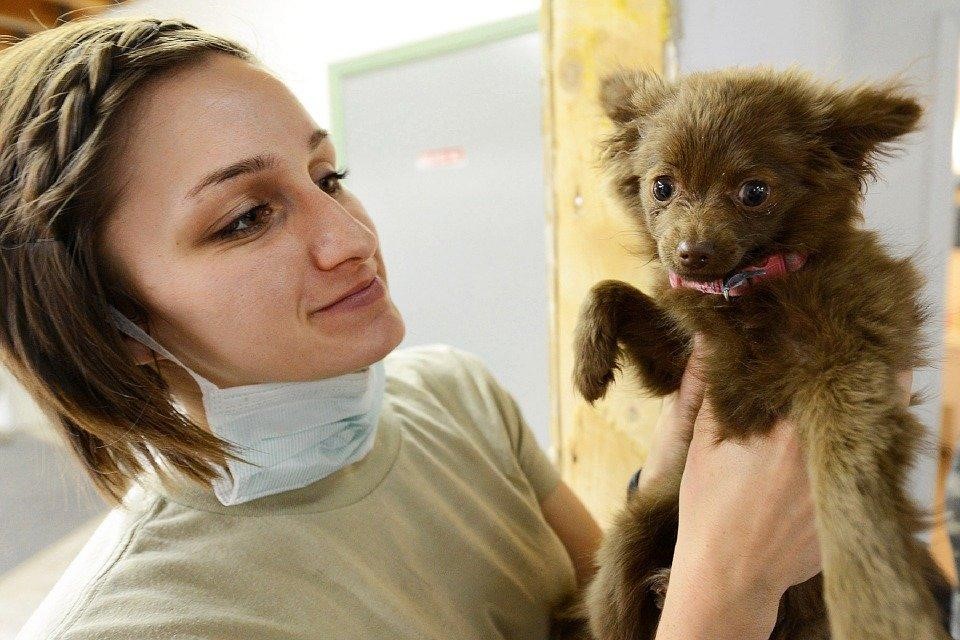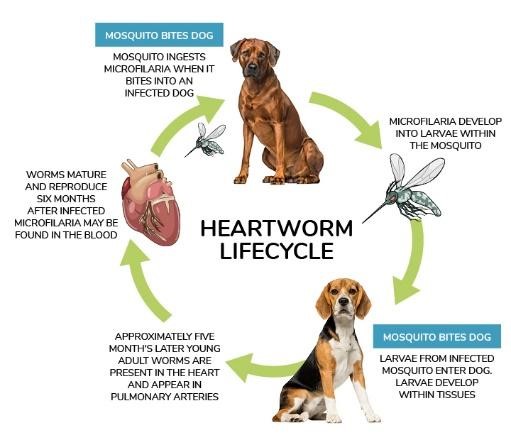13 services all vet clinics must include

According to an estimate, Americans share their households with over a hundred and forty million pet dogs and cats. It is also a proven fact that pets have a desire for unconditional love and in return, they offer several health benefits – including opportunities for socialization.
It is essential to keep your pets clean and healthy. And it is also advised to visit your nearest vet for routine vaccinations and checkups to keep them enjoying an active life. If you reside in Texas, you need not look any further. ‘Easyvet’ located in Frisco provides veterinary care on a walk-in basis. For more information visit their website https://veterinarianfriscotx.com/ and explore a world of services such as microchipping, tick prevention and senior pet care.
In the following article, we will be sharing the top ten services, all vet clinics must include in their services.
1. Comprehensive Examinations:
From the nose-to-the-tail checkup, every reputable veterinary clinic offers peace of mind to the pet owners by offering comprehensive exams. The assessment provides a baseline which includes:
- Weight
- Skin and eyes
- Throat infections
- Nose and mouth
- Full body review
- Heart and lungs review
The post-assessment plan includes a plan designed to keep your pet healthy.
2. Vaccinations
Due to the severity of some diseases, which are transmissible to humans, some vaccines are essential for all pets. The veterinarian can guide you better which vaccinations are recommended for your pets. Some common vaccines include hepatitis, rabies, and herpesvirus both in cats and dogs. It should also be known that the vaccines are divided into two categories. Core pet vaccines and non-core vaccines. The first one is recommended for all pets whereas the second one is recommended based on the lifestyle and habits of a pet. If a pet stays mostly outdoors, there are chances of being visited frequently by the vet.
3. Parasite Screening
Vets often prescribe parasite screenings, and the administration is an essential part of the pet’s annual checkup. Poop or feces samples are collected for examining intestine parasites. By doing a fecal, vets are able to determine if there are any parasites or roundworms.
4. Heartworm Testing & Prevention
 It is a disease that occurs from a mosquito bite and sometimes becomes challenging to diagnose. Heartworms, only come to notice when the lifestyle of a pet starts to become ineffective and symptoms start to appear including coughing blood and weight loss, etc. The heartworm disease is lethal which may lead to heart failure of the pet.
It is a disease that occurs from a mosquito bite and sometimes becomes challenging to diagnose. Heartworms, only come to notice when the lifestyle of a pet starts to become ineffective and symptoms start to appear including coughing blood and weight loss, etc. The heartworm disease is lethal which may lead to heart failure of the pet.
The diagnosis includes evaluation of the heart and liver to evaluate the risks involved prior to the treatment. Initially, aspirin was recommended all over the states, but it is no longer found effective for this treatment. Currently, an arsenic compound drug in the US known as melarsomine is highly effective. Also known Caparsolate in the market, makes it a safe and reliable alternative.
However, depending on the damage, sometimes surgery is also suggested to remove adult heartworms. The American Heartworm Society, highly recommends heartworm vaccinations to prevent such diseases.
5. Flea & Tick Prevention
Found both in cats and dogs, there are many natural ways to treat your pets at home. But the real challenge is that the ticks can spread in your household as well. These could be risky, as they could be a threat for both kids and adults when they play or cuddle with pets. It is highly recommended to follow these simple steps straight away.
- Regularly use a flea comb – and get rid of any, by drowning in water
- Clean the pet bed hourly
- Vacuum the house frequently
These are some natural methods for prevention. However, you may also get in touch with specialists to have peace of mind.
6. Annual Blood Work & Health Screening
Your pets are never going to tell you if they are feeling unwell, and that is where the clinical reports come in handy. The blood work and health screens can help you prevent, potential threats and severe illnesses. They are also beneficial to rule out allergies and other issues that could harm the liver or kidney.
A good vet keeps complete records of the consulted pet. So don’t be surprised if your vet prescribes your pet for a health screening or blood test during the first visit, as it is sometimes a mandatory protocol. However, it is recommended to schedule an appointment before going to the vet for your pets’ annual health assessments.
7. Microchipping
These days shelters and control offices often search for microchips, to return pets to the owners. It is an identifying circuit inserted in the skin of the animal. It’s the size of a rice grain or approx. half of an inch. The procedure is simply done by injecting the chip inside the skin or sometimes this technique is done behind the ears for farm animals. The microchipping has proven so far with some great benefits and the owner of the pet gets to keep a certificate that comes along with the chip as an identification number, which can also be written on the collar tag. This way the chances of your pet being stolen are next to none.
8. Behavior & Lifestyle Counseling
No, we aren’t saying that your pet needs to go to see a shrink. But behavioral specialists offer some really great techniques including conditioning and reinforcement techniques which are beneficial for the pets and the owners too. So far we have seen animal counselors work with aggression issues, biting and barking too. It’s all about how you can add value to the lifestyle of your pet and encourage them to socialize with other pets.
Remember, like us – your pets can get bored too. Give them some breathing space and let them wander freely.
9. Nutritional Consultations & Prescription Diets
Nutrition and diet play an essential part in your pets’ active and healthy life. Some vets have additional expertise in nutrition and are able to suggest the right combination of diet for your pets.
The dietary plans are custom-made and may also include supplements and nutrition.
10. Chronic Illness Management
Just like us – our pets may also get sick, with severe illnesses. However, prevention is better than cure, so we advise you to look out for any of the following symptoms, and if you notice any, do contact your vet as soon as possible.
- Allergies
- Chronic Renal Insufficiency
- Cognitive Dysfunction
- Cushing’s Disease
- Degenerative Heart Valve Disease
- Diabetes Mellitus
- Obesity
- Osteoarthritis
- Pancreatitis
- Periodontal disease
11. Allergy Screening & Management
If you haven’t overcome the illness part yet, you may be overwhelmed to discover that your pet may be allergic to certain types of food as well and this is why nutritional counseling is so necessary. According to a study, ten percent of allergies in dogs are related to food allergy. The symptoms vary from itchiness, diarrhea or issues related to gas.
Other common allergies are triggered by proteins including dairy products or beef or chicken etc.
12. Chronic Pain Management & Senior Pet Care
Geriatric pet care in recent times has extended a helping hand across the states, which was previously not available extensively. Here are some tips which you can follow as your pet ages.
- You should serve them with foods that readily available to digest.
- The senior pet health assessments are similar to young pets, however, you may visit the vet more often instead of the yearly visit. Senior pets can have more in-depth analysis too.
- If your pet increases his weight while he ages, it could bring a lot of health issues along. So keep them healthy with a good diet and training.
- Their immune system becomes weak, so give extra care.
- Geriatric vaccinations differ from time to time and are perhaps different than the ones given to younger ones.
- Some senior pets develop physical limitations such as stairs or like to spend more time indoors etc. They may also develop or require some special needs, so it is suggested to discuss with your vet for alternatives, which may facilitate them better.
13. Compassionate Euthanasia & Aftercare
We have come towards the end of this article and are left with the most sensitive part to be addressed. There comes a time in your pets’ life when you may have to part ways and take a painful decision to end his sufferings. It would be something like pulling off a human from a ventilator. But in this case, you release him from a longing pain. And there are some veterinary services which along with offering euthanasia, also provide cemetery and aftercare services.
Well, that would be all for the day.
The Final Word
If you have any concerns or questions, you should always call or visit your vet– they are your best resource to ensure the health and well-being of your pets.
Disclaimer: The purpose of this article is not to provide clinical advice, diagnosis or treatment plans for your pet. Although this post shares linkages to other sites, they are for informative purposes only.









